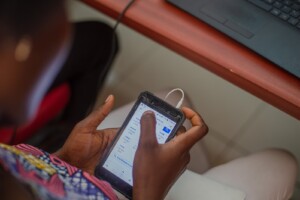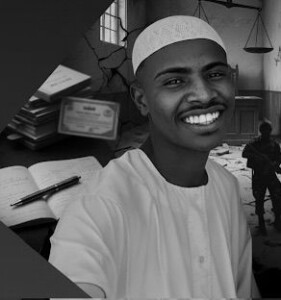Sudan’s objections to Radio Dabanga draw flak on social media
Commenting through social media, people criticised the Sudanese government that voiced objections to the Dutch government for allowing independent radio station Radio Dabanga to produce its broadcasts in the Netherlands.
A week ago, the Sudanese government voiced objections to the Dutch government for allowing independent radio station Radio Dabanga to produce its broadcasts in the Netherlands. Commenting through social media, people criticised the government’s objections.
In Radio Dabanga’s ‘Question of the Day’ section, which invites people to comment on active issues in Sudan on social media network Facebook, 120 people shared their thoughts about the government’s objections within 16 hours.
Asked on Wednesday 10 February, most of the reactions were supportive of Radio Dabanga and criticised Khartoum’s attempts to silence those who expose its policy. A number asked about the possibility to turn the station into a television channel. Few commentators expressed negative criticism of the radio station.
“Does this mean that the Sudanese government has solved all political and economic problems, solved the poverty and hunger, and returned all the money that was stolen from the oil trade, leaving only the suspension of Radio Dabanga?,” asked Mohamed Salih Ahmed.
Shafi Abdallah said that the Netherlands “is a democratic state, that respects freedom of expression, opposite to Sudan’s government […] Radio Dabanga in recent periods made magnificent steps by covering events with reports from the ground, therefore the government believes it threatens its security by reporting the untold story.”
“Yes for the young and yet professional Radio Dabanga, which has entered the hearts of all marginalised people,” wrote Mohamed Jackson.
Mazen Kamal asked: “Sometimes Dabanga brings false news; do we have to trust everybody that says something?”
“The government has the right to stop Radio Dabanga because it brings only false news and cooperates with criminal and rebels, who use Dabanga to bring news about their crimes,” according to Abdelrahim ‘El Nigeri’. “What a big mouth Dabanga, who do you think you are? BBC Radio?,” said Ghibaish.
Some commentators displayed a sense of humour. “Like a butcher looking for his lamb, Al Bashir looks at the country where the International Criminal Court is located,” wrote Ali Suleiman.












 and then
and then